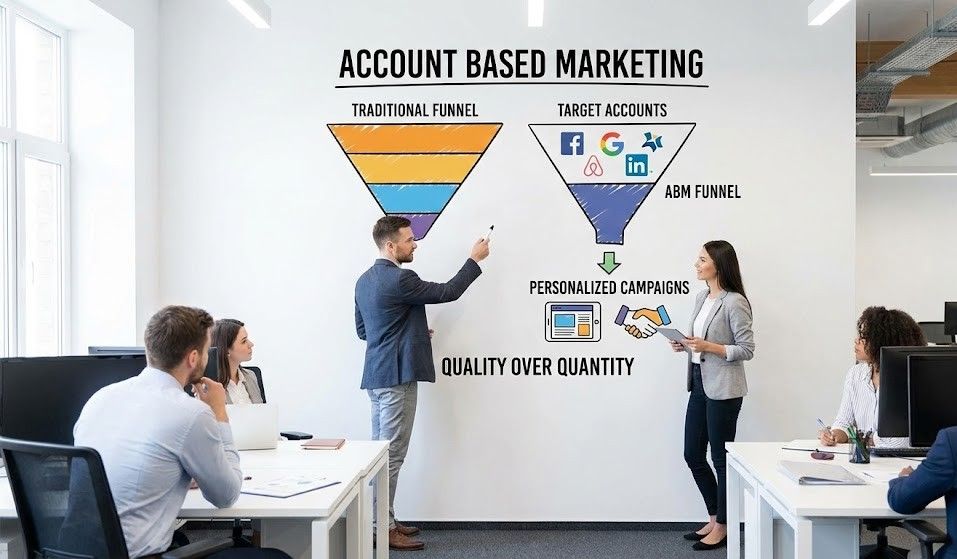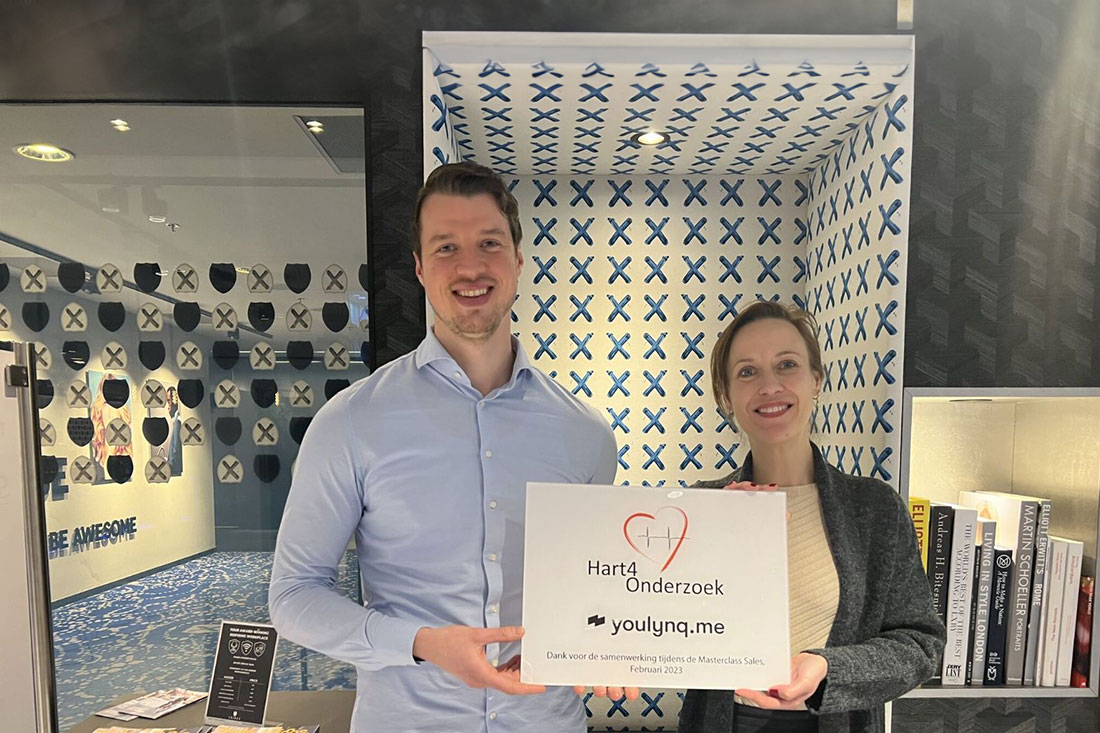What does personal branding mean? Personal branding means considering yourself as a brand. It’s the way you present yourself, your brand, to others. You use your personality, knowledge, and experiences to positively distinguish yourself in the minds of your target group. By showing your qualities, passions, and ambitions, you create a bond with your (potential) customers. This allows you to establish a personal connection with them. It is important to ask yourself, “What image do I want others to have of me?” Additionally, in the B2B space, B2B lead generation strategies are crucial for attracting and engaging qualified prospects.

Are you looking for ways to grow your business?
We can help you out. Trust us.
Get in contact! More infoWhat are the benefits of personal branding?
There are many benefits to effective personal branding. By demonstrating why you are unique to a customer and how you can help them, you create credibility and reliability, which will ultimately help build a relationship with your potential customer. Fostering long term relationships in the B2B space is crucial for sustained success. Additionally, you ensure that you are recognizable as an expert within your niche/market, which will contribute to customer confidence. It will also provide more business focus because using the same guidelines and style ensures conveying a consistent story. This ensures more online recognizability.
Different forms of personal branding techniques and strategies
There are different techniques and strategies to shape your own personal brand. However, there are a number of techniques that have proven to be successful. Firstly, it is very important to prove your expertise in your field. This will ensure that your personal brand creates trust. Additionally, it is crucial to regularly bring your personal brand into the spotlight in a consistent manner. It’s essential to control your branding to maintain a consistent and impactful personal brand image across all platforms and interactions. This means regularly releasing content that aligns with your brand messaging. Last but not least, be authentic—be yourself. Make sure you stay true to yourself and don’t try to mold your personal brand based on what you think it should be. People recognize when the message does not suit the sender. If you are someone who pays attention to all details, make sure that this is also the case in your communication with the outside world. However, if you are someone who is less focused on details, it doesn’t have to look as polished.
From our Knowledge Base
Personal branding involves positioning yourself in a way that communicates who you are, what you stand for, and what you do. Your personal brand is your reputation. Cultivating a strong personal brand opens up job and career opportunities.
Read moreA personal brand can be used for your professional career. It depends on what you’re looking for, but it can be used for anything. Whether you’re seeking a new job, new clients, or something else, you can build it according to your specific needs.
Read moreA personal branding strategy is a great way for ambitious individuals to enhance their online reputation and stand out from the crowd.
Read moreWhen aiming to improve your personal brand, there are several steps you should follow. First, figure out who you truly are and determine what you want to be known for. Evaluate your target audience and consider any necessary improvements. Seek out experts for interviews and gather valuable information. Recommendations can also showcase your expertise. Lastly, ensure your online visibility by regularly posting content to maintain your presence.
Read moreThere are several steps to creating your personal brand. Authenticity is crucial; building a personal brand is not about crafting a persona but being true to yourself. Identify your target audience and tailor your communication to meet their needs. Develop a content strategy to effectively build your brand and earn trust. Additionally, devise a visibility strategy to capture the attention of your target audience. Lastly, focus on building a community around your brand.
Read moreHow do you use personal branding for LinkedIn content?
LinkedIn is, of course, the ideal platform to work on your personal branding. LinkedIn is much more than just a website to post your CV online. LinkedIn is the largest digital business network in the world. Whether you want to enhance your personal profile or the company profile, LinkedIn is the way to establish yourself as a thought leader within your field. Optimizing your profile and regularly sharing content will go a long way. Show who you are, what you are good at, and what sets you apart from the competition.
A step-by-step plan for personal branding for entrepreneurs
Based on our step-by-step plan, you can start building your personal branding on LinkedIn with these LinkedIn personal branding tips.
Tidy up your profile
Consider having a professional profile photo and background photo. Make sure your work experience and education sections are correctly filled in. Provide a catchy title that shows who you are, what you do, and what you stand for. Tell your story in the “about” section. Show what drives you, what motivates you, your knowledge and experience, and the results you have achieved earlier in your career. For additional LinkedIn optimization tips, consider incorporating recommendations on your profile. It’s reassuring to know that you’re good at your job, but what works even better is having others who can vouch for how good you are!
Share valuable content
By sharing valuable personal branding content on LinkedIn, you can establish yourself as a thought leader. You can share content on LinkedIn in several ways. For example, write personal stories, share blogs from your website, or share news articles from other relevant websites.
Be interactive
If you have your profile in order and share the right content, you still have to reach the right people. Be active on LinkedIn yourself, for example by responding to other posts and by always expanding your network. The larger your network is, the greater your reach will be.
How can YouLynq.me help you with your personal branding?
LinkedIn is the perfect platform for working on your personal branding, and we at YouLynq.me are happy to assist you! Together, we will build your network by connecting you with the right people. Additionally, we can help you optimize your profile, ensuring that all your expertise and experiences are clearly visible and easily discoverable by potential customers. We also provide assistance in sharing content, allowing you to establish yourself as a thought leader within your industry. Feel free to reach out to us for your complete LinkedIn strategy.















